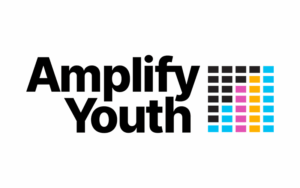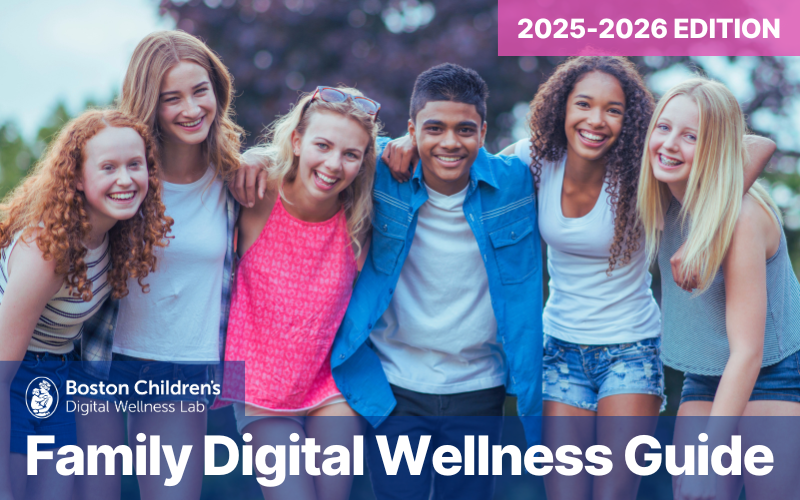2023 Impact Report
Tuning for Wellbeing
RESEARCH
COLLABORATIONS, CONVENINGS, & INITIATIVES
OUR TEAM & SUPPORTERS
FINANCIALS
PUBLICATIONS, PRESENTATIONS, & PRESS
LOOKING AHEAD


A message from our Founder & Director, Michael Rich and our Executive Director, Cori Stott
Together, we have the opportunity to catalyze a paradigm shift in how we approach digital wellness, and in doing so, we can create a brighter, healthier future for generations to come.



66%
of parents believe parenting now is harder than it was 20 years ago, with technology as the main factor (Auxier, et.al., 2020)
49.5%
of teens surveyed report using a smartphone for 5+ hours on a typical weekday (Bickham, et.al., 2023)
57%
of teens surveyed felt that parents considered their perspectives when setting media-related rules (Bickham, et.al., 2023)
11.2
The average age at which current adolescents reported that they started using a social media platform (Carter, et.al., 2023)
69%
of 3rd-5th grade teachers in the US who report using some digital citizenship curriculum (Lauricella, et.al., 2020)
2.1 million
Approximate number of adolescents that are experiencing PIMU in the US (Bickham, et.al., 2022)
The Digital Wellness Lab at Boston Children’s Hospital and Harvard Medical School seeks to understand and promote positive and productive digital media experiences for young people, from birth through young adulthood.
Research
We’re developing an evidence base for digital wellness
Our research primarily focuses on examining the relationship between interactive media technologies and development, particularly as it affects young people’s mental, social, and emotional health. To keep pace with the multifaceted, ever-changing media environment, we employ a range of research methodologies, and collaborate with other researchers working in the same or adjacent fields. Understanding the impacts of AI, social media, and gaming are of particular interest, as these are the technologies currently most used by youth.
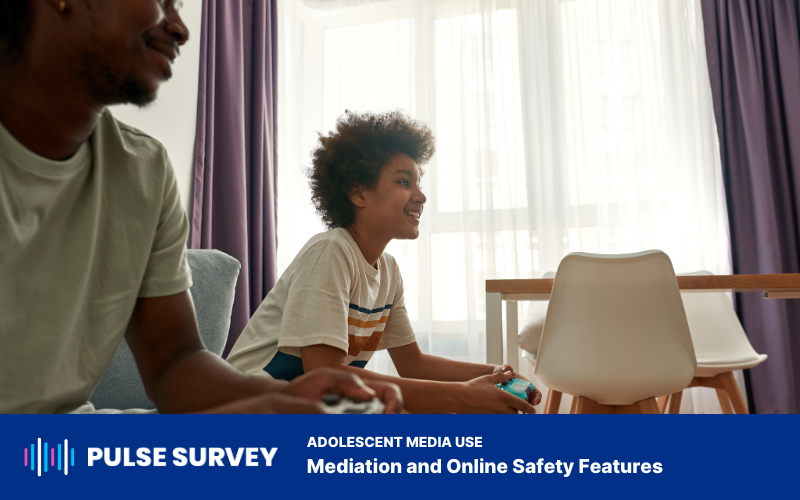
Taking the pulse of children and teens
In 2023, we conducted two Digital Wellness Pulse Surveys — Exploring the Nuances of Young People’s Social Media Use and Experiences and Adolescent Media Use: Mediation and Online Safety Features — helping us to stay current on topics related to children’s and adolescents’ media and technology use.
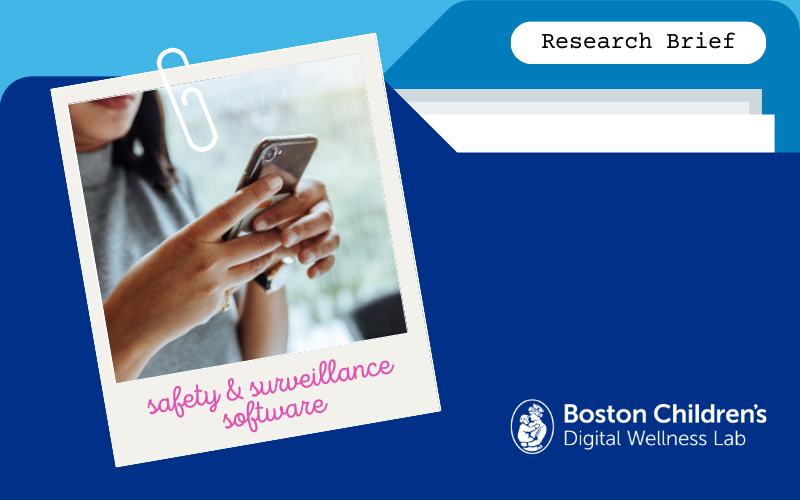
Diving deep into relevant research and findings
To share relevant research and findings with the broader industry and public, we published six Research Briefs on top-of-mind topics including: Safety and Surveillance Software, Children’s Views on Gaming, Children and Artificial Intelligence, Digital Citizenship and Media Literacy, and Sharenting and Child Influencers.
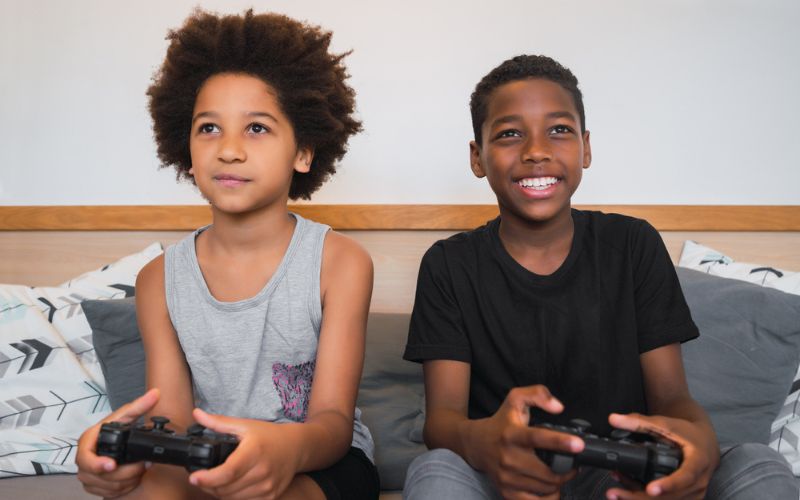
Studying the social gaming experiences of young people
The Lab is continuing its collaboration with researchers at the University of Michigan and the University of Washington to study the gameplay experiences, conceptualizations, emotional drivers, and decision-making processes of children and teens (aged 8-14) who play online multiplayer games such as Roblox, Minecraft, and Fortnite.
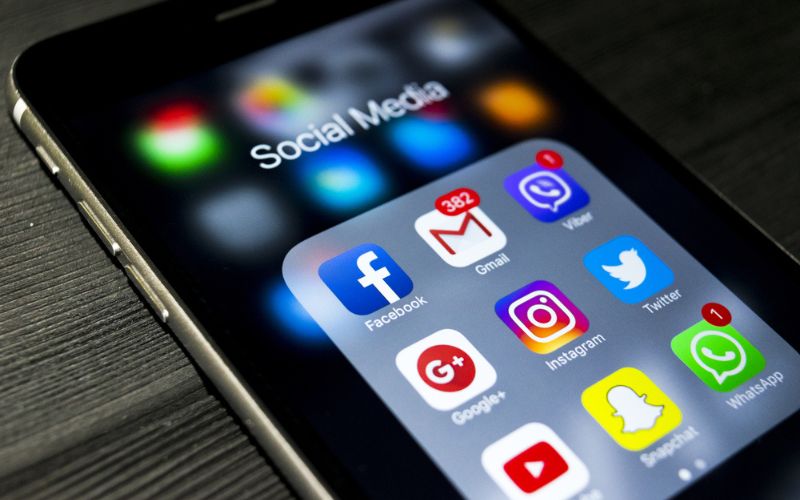
Studying the impacts of social media on young teens
This study, in collaboration with Wellesley College, will shed light on important components of young teens’ (aged 13-15) social media ecology as well as offer proof-of-concept of the multi-method approach needed to enable funding to include larger, more geographically dispersed adolescent samples.
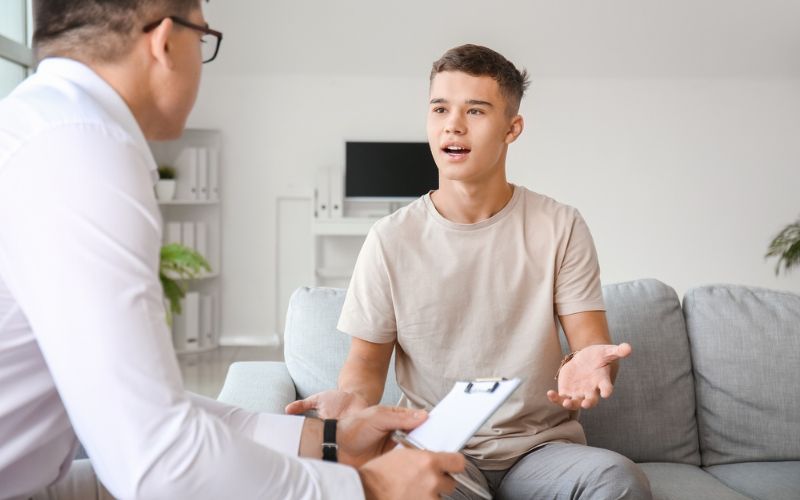
Helping clinicians to identify and treat PIMU
In this ongoing project, the Lab is working closely with the Clinic for Interactive Media and Internet Disorders (CIMAID) team to develop and validate an in-office screener and brief intervention to support clinicians in identifying and treating Problematic Interactive Media Use (PIMU) in primary pediatric settings.
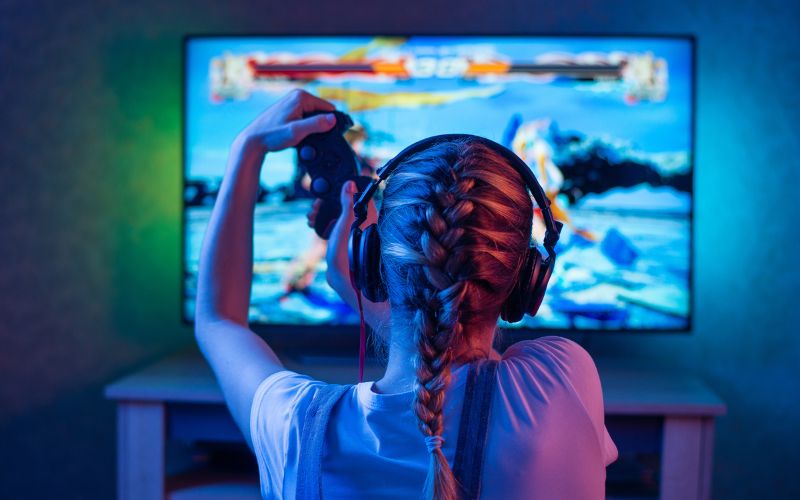
Investigating the key risks factors for PIMU
This project, a collaboration between the Lab and the Clinic for Interactive Media and Internet Disorders (CIMAID), entails a clinical chart review investigating commonalities among previous and current CIMAID patients in order to identify key risk factors for Problematic Interactive Media Use (PIMU).
Collaborations, Convenings & Initiatives
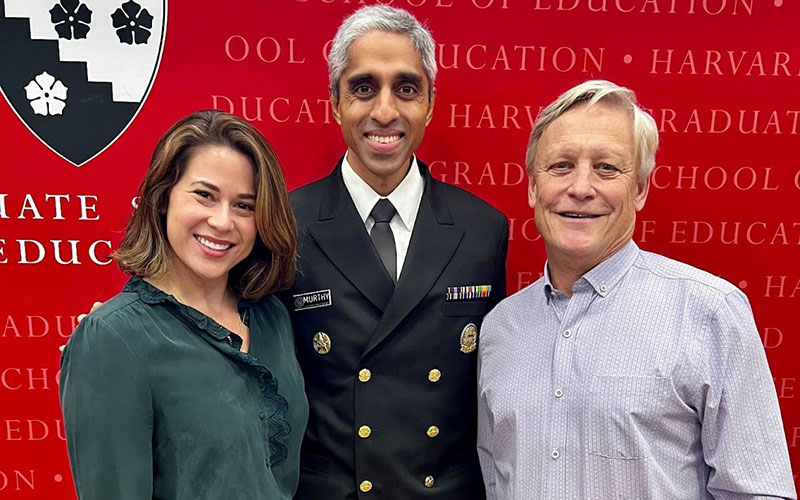
COLLABORATION
Sharing our research with decision makers
Engaging with policy-makers, tech and media companies, clinicians, educators, and other decision-makers to share what we’re learning in our research is an important component in how we create impact. In May 2023, this work resulted in the Lab being cited in U.S. Surgeon General Vivek Murthy’s Advisory on Social Media and Youth Mental Health.
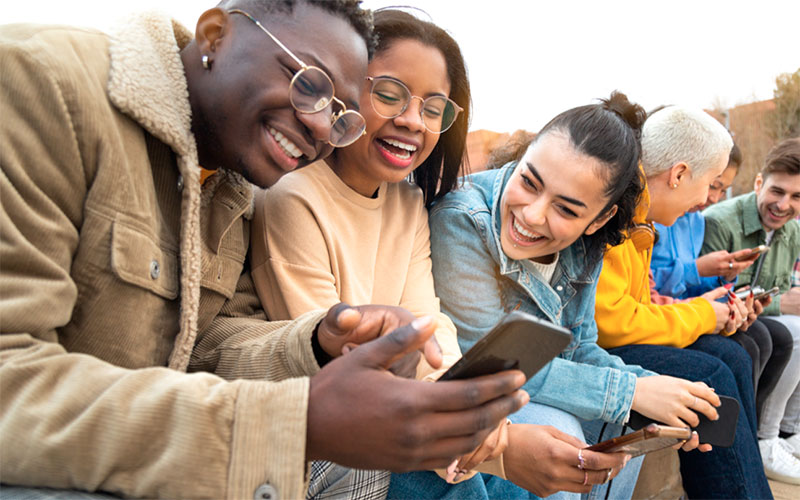
Convening
Building a more civil online ecosystem for youth
In May 2023, the Lab, together with Roblox, convened over 100 experts from tech, education, policy, and more to ask what would need to happen to make the online world a truly safe and civil space, resulting in a white paper, Creating a Positive Foundation for Greater Civility in Online Spaces.

Initiative
Making the internet a healthier place for young people
In June 2023, Dr. Rich took to the stage with Pinterest at the Cannes Lions Festival to officially launch the Inspired Internet Pledge with fifteen early signatories and advisors committing to work together to build a safer and healthier internet for everyone, especially young people.
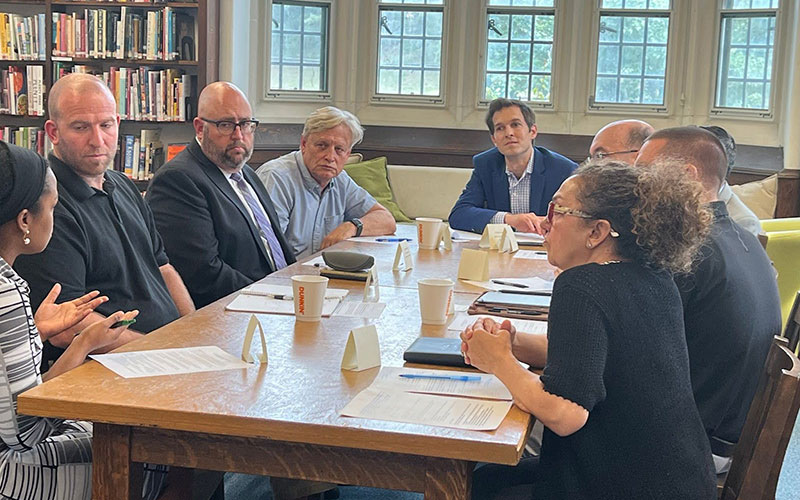
COLLABORATION
Joining stakeholders to discuss social media and mental health
In June 2023, the Lab joined a panel of pediatric health and education experts at a roundtable hosted by Massachusetts Congressman Jake Auchincloss to discuss the positive and negative effects of social media on child and teen mental health and emotional wellbeing.
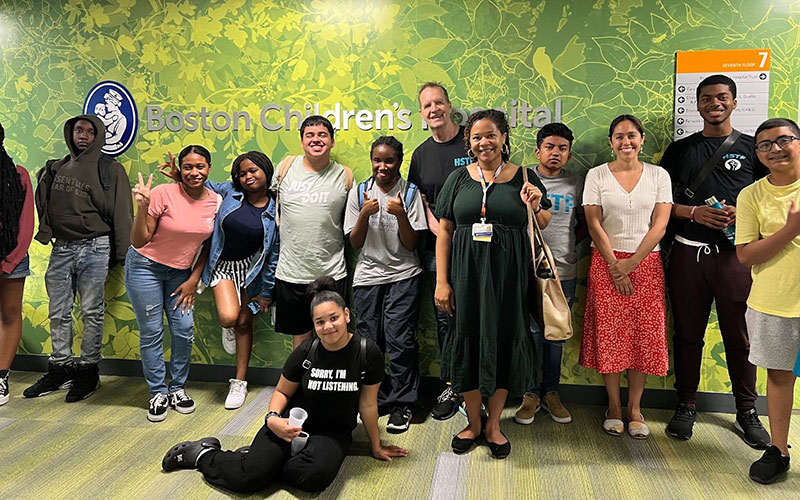
COLLABORATION
Learning from the teens of the Hyde Square Task Force
In June 2023, 75 teens from the Hyde Square Task Force trekked all the way to Boston Children’s from Jamaica Plain in the summer heat to share their experiences with social media, texting, and video games with Boston Children’s Keneisha Sinclair McBride and Samantha Correlejo, and Dr. Michael Rich and others on the Lab’s team.
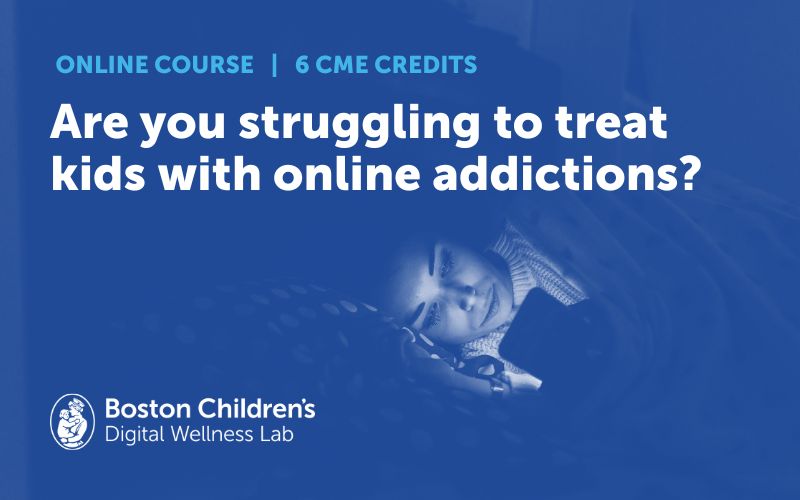
Initiative
Teaching clinicians how to identify and address PIMU
At our annual CME course in October 2023, a team from Lab and across Boston Children’s, including the Clinic for Interactive Media and Internet Disorders (CIMAID) and the Department of Psychiatry and Behavioral Sciences, taught medical practitioners and educators how to identify and address Problematic Interactive Media Use (PIMU).

Initiative
Bringing teen voices to the future of digital media
In October 2023, we convened our 2023-24 Student Advisory Council. In its second year, our Council doubled in size, ensuring that we can hear directly from a diverse group of young people from across the United States about their experiences with the digital ecosystem and mental, social, and emotional wellbeing.
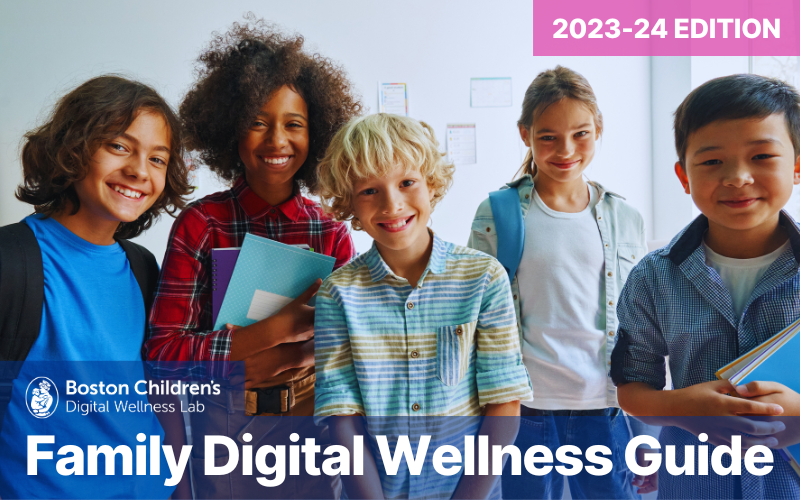
Initiative
Empowering families to navigate today’s online world
In December 2023, we released the 2023-24 edition of our Family Digital Wellness Guide. Featuring science-backed information on developmental milestones, the latest research on how kids are using interactive media today, and evidence-based recommendations for helping young people of all ages build healthy and safe digital habits.
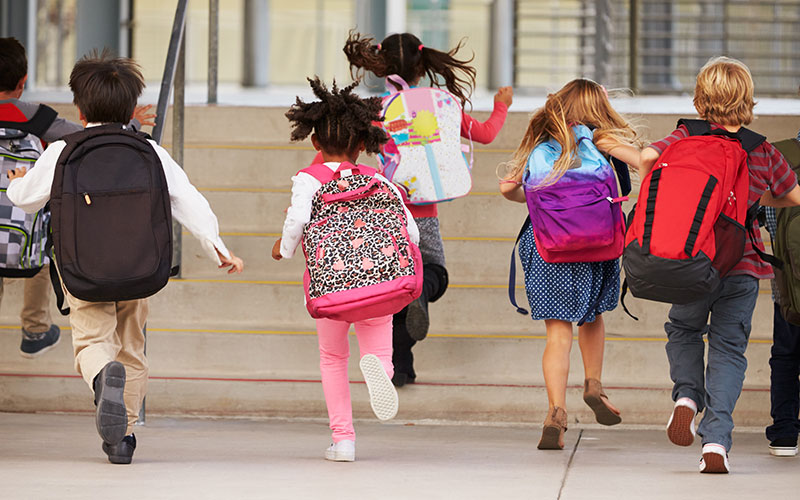
Convening
Defining what it means to tune for wellbeing in online spaces
In December 2023, the Lab, with support from Pinterest, convened approximately 60 experts from across different disciplines to design a roadmap for a healthier digital ecosystem for children. This inaugural event resulted in a white paper, Designing a Roadmap for a Healthier Digital Ecosystem, published in February 2024.
We’re sharing our research and clinical expertise
Team members from the Lab serve on global advisory boards to further broaden the reach of our research and clinical takeaways in support of building a healthier digital ecosystem for young people.
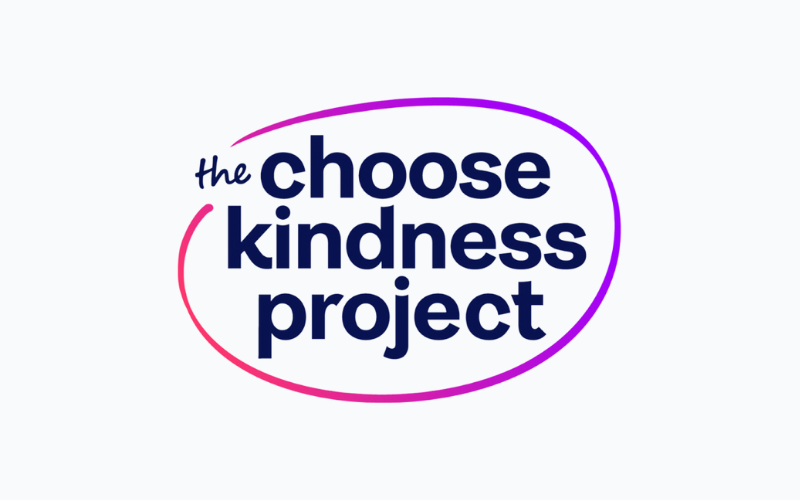
The Choose Kindness Alliance is designed to foster collaboration and innovation between leading bullying prevention, inclusion, and mental wellness organizations.
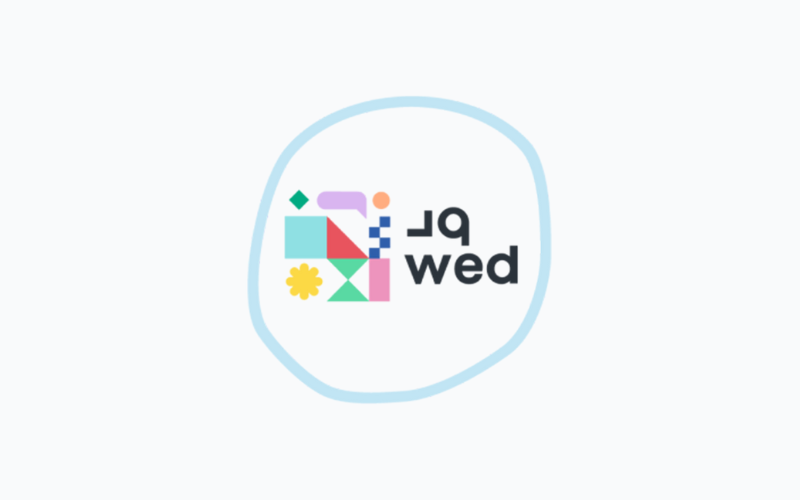
The Abu Dhabi Early Childhood Authority (ECA) Children’s Humanitarian Technology Group is an international group working to design a digital ecosystem that is healthier for children.

Snap’s Safety Advisory Board convenes regularly to share evidence-based feedback on safety-related policies, product features, and other related initiative to support a healthier online experience for teens and young adults.

As part of their commitment to digital civility, Roblox has formed a Trust and Safety Advisory Board composed of world-renowned digital safety authorities who convene to discuss Roblox’ progress on their Digital Civility Initiative.

Meta’s Youth Advisory Group, composed of a diverse, global group of experts in youth mental health and digital wellness, convenes to share insights from research and clinical expertise to support healthy, safe online experiences for teens and young adults.

Get Media Savvy’s founding advisors are experts in their field working to establish a healthy media environment for kids and families.
Our Team & Supporters
We’re growing our team to deepen our impact
We welcomed four talented new team members in 2023, increasing our capacity to develop an evidence base for digital wellness.
Our work is made possible through the generosity of individuals, foundations, and corporate supporters
At the Digital Wellness Lab, we seek to engage key stakeholders from academic research, healthcare, and corporate industry in an open conversation designed to: deepen our understanding of the positive and negative effects of the media and technology young people use and how they use them; use what we learn to empower caregivers, educators, and clinicians; and inform meaningful shifts in the design of digital devices, applications, content, and policies to support the long-term social, emotional, and mental wellbeing of youth globally.
2023 Financials
At the Digital Wellness Lab, we believe that it is imperative for key stakeholders in the digital ecosystem to not only be involved in evidence-based and clinically-informed collaborative conversations about the effects of digital engagement on youth mental health and social and emotional wellbeing, but also to then integrate their learnings into how they design products, policies, and supports to make the digital ecosystem healthier and safer for young people.
As our financial resources are provided as philanthropic gifts, without obligations from organizations that operate in the digital ecosystem, we experienced fundraising challenges in 2023 as many companies struggled with their own financial challenges. Despite this, our fundraising was on par with costs, indicating a continued faith in our work to advance digital wellbeing for young people. We also worked diligently to keep our expenses down, requiring a postponement of some innovation work, but allowing us to maintain our expanded research agenda.
Revenue
$1,495,000
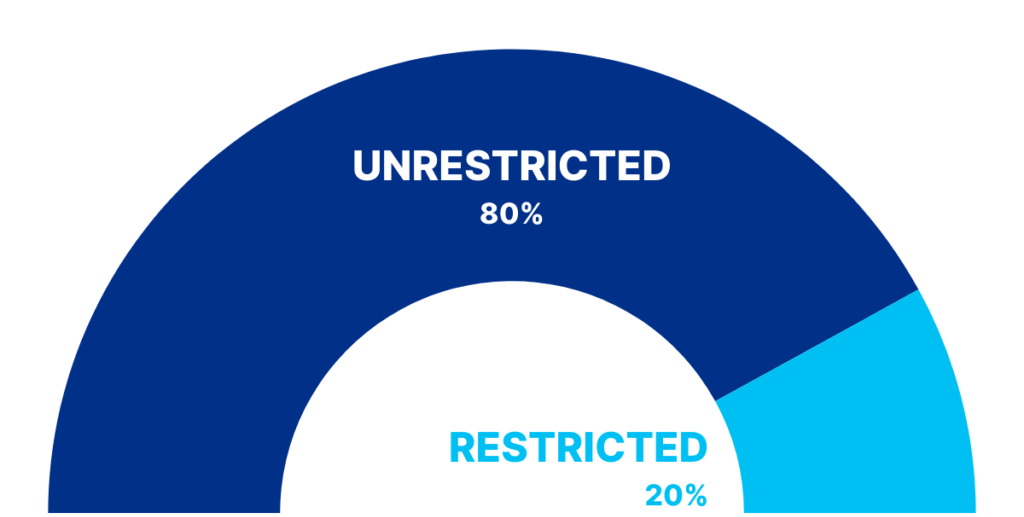
Expenses
$1,545,000
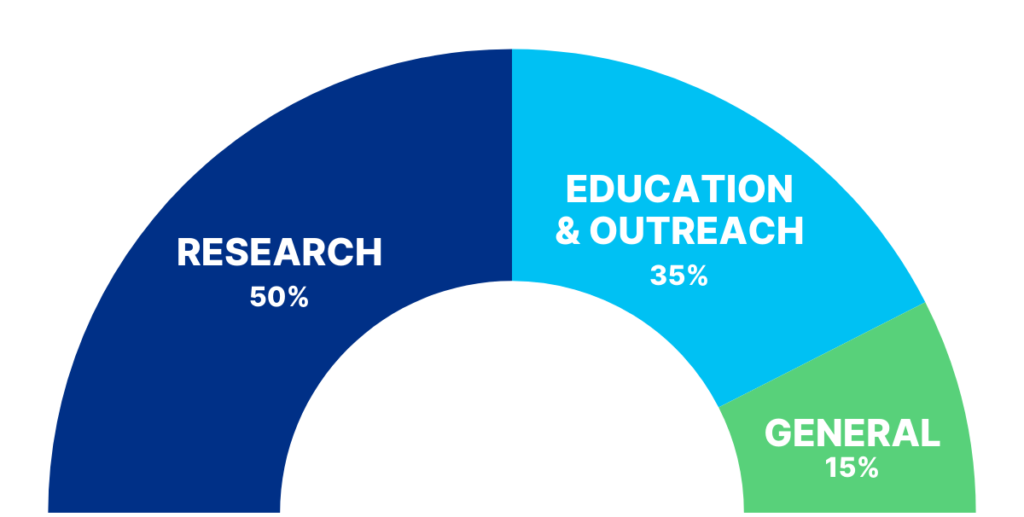
Publications, Presentations & Press
From taking the stage at the Cannes Lions International Festival of Creativity to announce the Inspired Internet Pledge to gathering #IRL with our colleagues at #FOSI2023 to share ideas about online safety in our ever-changing digital world, 2023 was another busy year for our team.
Looking Ahead
We’re harnessing the power of our insights for positive mental health outcomes for all young people
In January, our team was in Davos during the World Economic Forum to participate in the Human Change House. February found us releasing the findings from our latest Pulse Survey on how families are using AI-powered Voice Assistants and Generative AI. And in March, we’ll be on stage at SXSW to discuss a model of practice for creating a more civil digital environment drawn from the findings of our global expert civility convening in early December 2023. All in all, 2024 is shaping up to be a busy year as we work to shed light on the positive and negative impacts of technology and media use on youth mental health.
We believe that by following the science, we can create an empathetic and respectful world in which our kids can grow up healthy, smart, and kind.

Subscribe to our email newsletter to receive Lab news & insights
©2026 Boston Children’s Hospital. All rights reserved. Terms of Use Privacy Policy



